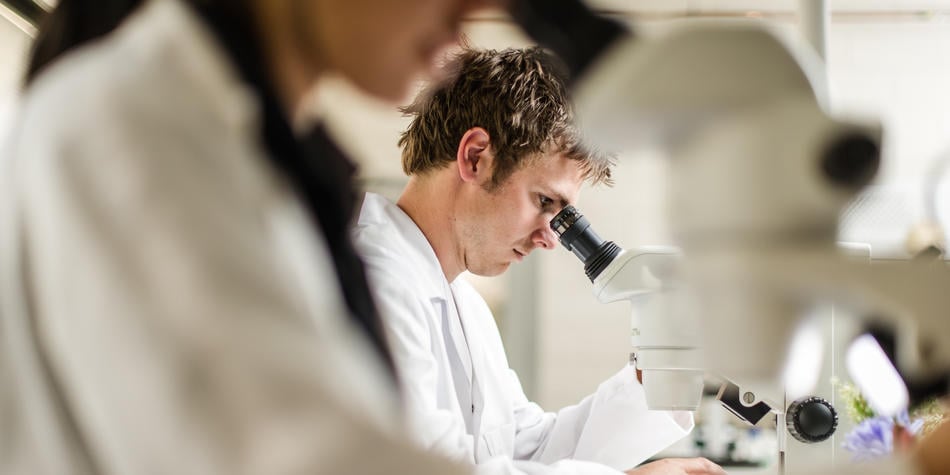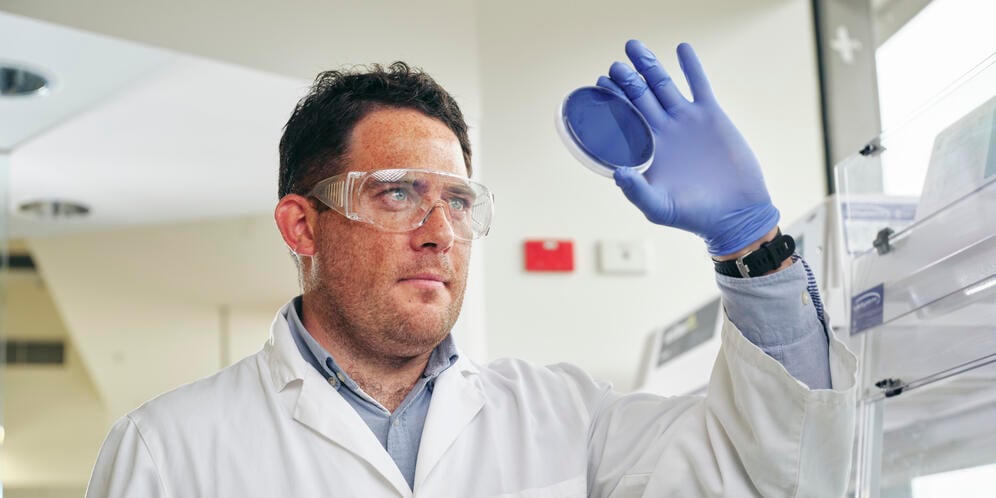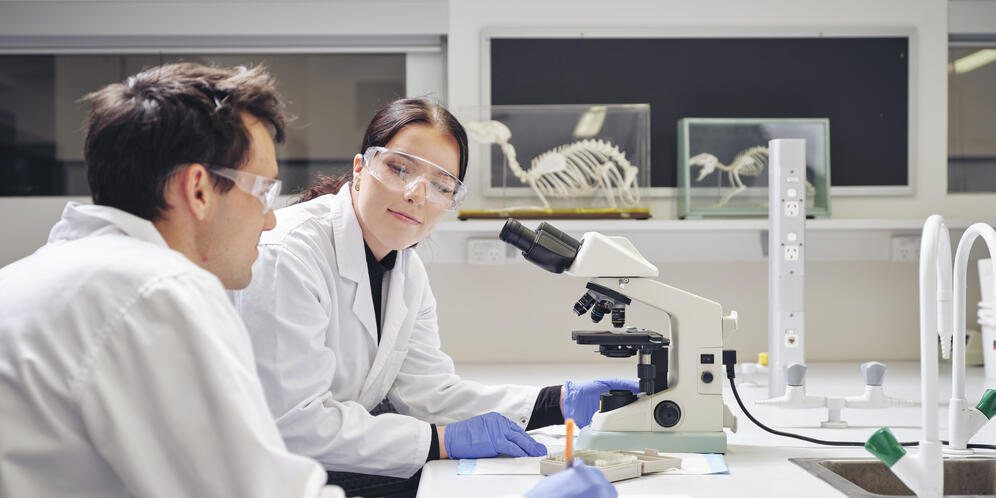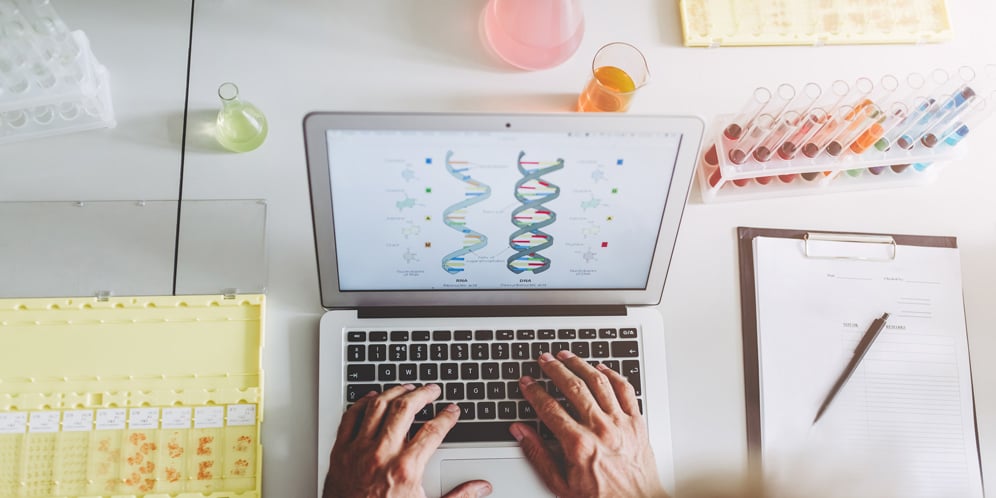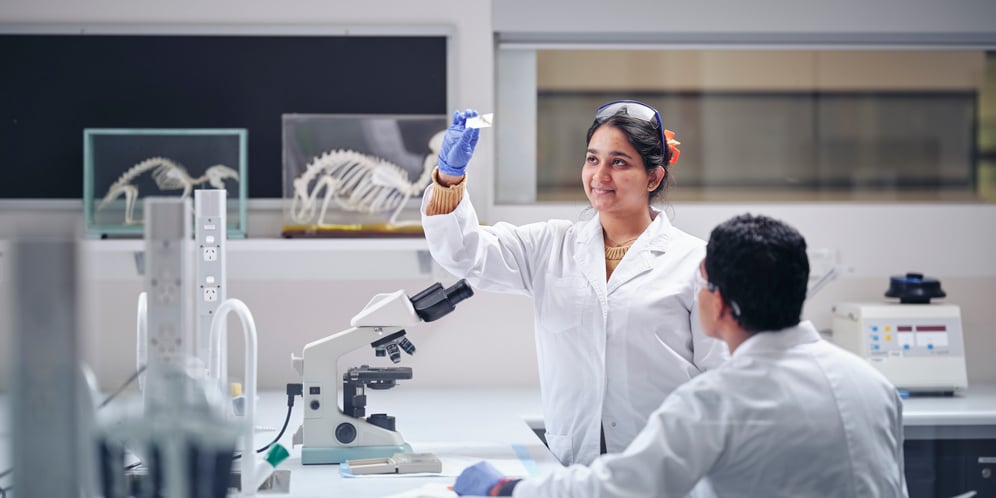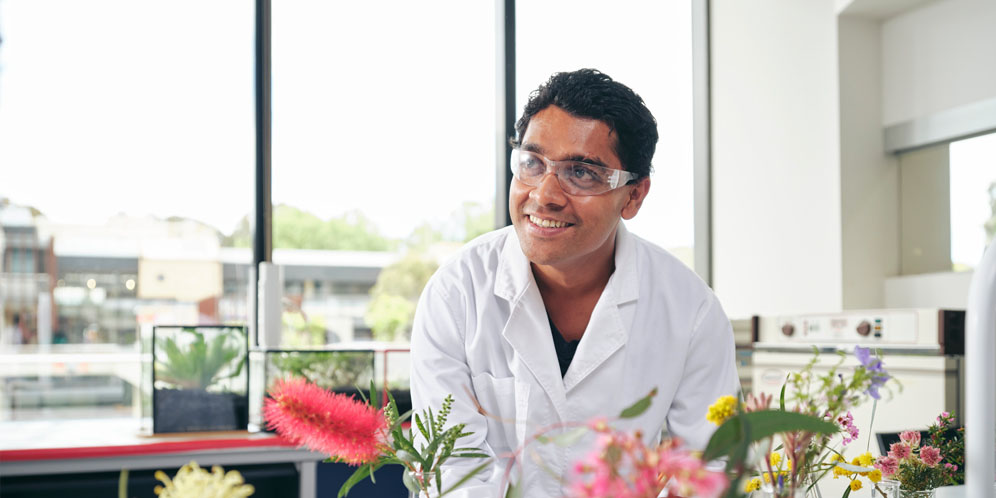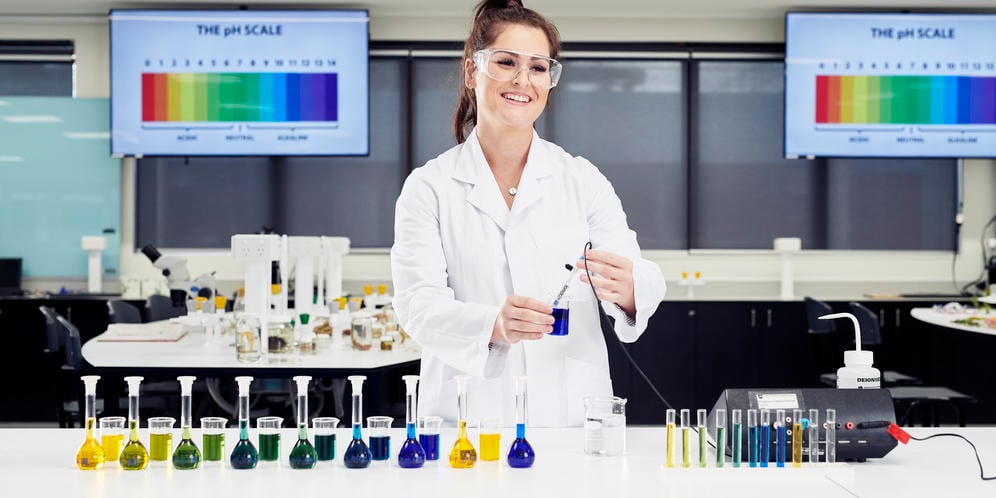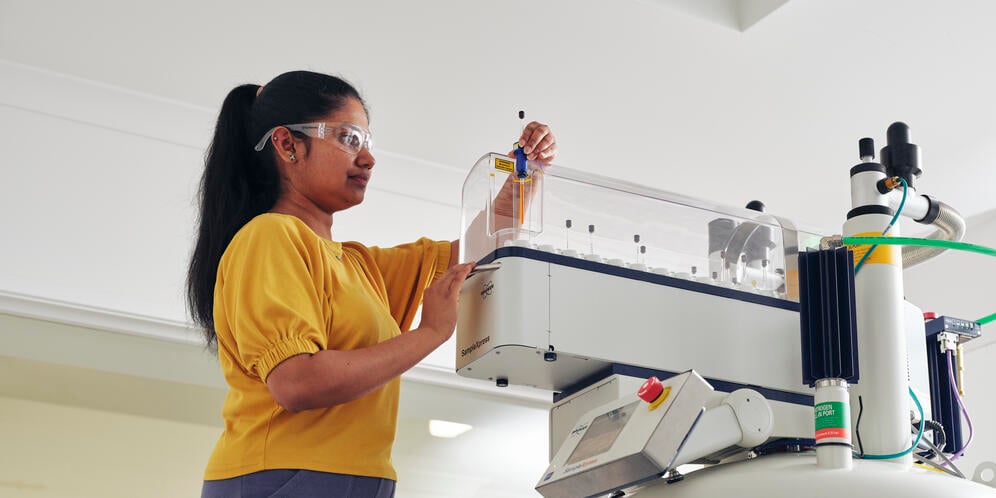Get work-ready
You'll learn in the field, not just the classroom. Apply your knowledge to the latest tech in biotechnology and bioinformatics research, including operating cutting-edge analytical equipment like cell-culture bioreactors similar to those used in industrial-scale production facilities. We ensure students have opportunities to gain an industry perspective and establish professional networks prior to graduation.
Undergraduate
Undergraduate (your first degree)
An undergraduate degree is generally completed between two to four years, depending on the pattern of study and any recognition of prior learning you may have. Associate degrees, bachelor and bachelor with honours are all undergraduate degrees.
Postgraduate
Postgraduate (further study)
A postgraduate qualification can be undertaken by students who have already completed an undergraduate degree or possess significant, demonstrable work experience. Postgraduate courses include graduate certificates, graduate diplomas, masters and PhDs, as well as specialist programs for industry professionals.
Research
Higher Degrees by Research (supervised research)
Research degrees are research based master’s or PhD programs that focus on a single area of expertise. They provide students the opportunity to carry out highly specialised research under expert supervision.
Career opportunities
A biotechnology qualification is highly relevant and extremely versatile in research and development roles in the public and private sectors. Depending on your chosen area of expertise, you may choose to seek employment in a wide range of roles, such as:
- agricultural scientist
- animal scientist
- biotechnologist
- botanist
- chemist
- food scientist
- material scientist
- molecular biologist
- researcher
- science journalist or communications specialist.
Study with the best
Deakin is ranked in the top 1% globally for life sciences and medicine.* This rating highlights Deakin’s world-class facilities, academic reputation, employer reputation and research impact.
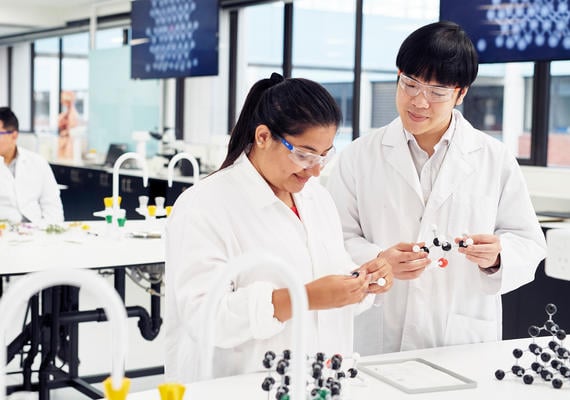
Life and environmental science facilities
Explore Deakin's life and environmental science facilities at our Melbourne Burwood Campus, featuring modern labs and equipment, and the ability to conduct practical work in the natural reserve and creek right by campus.
Industry connections
We offer numerous opportunities for you to learn directly from key industry partners throughout your studies. Through guest lectures, site visits and industry linked projects you'll gain a thorough understanding of industry-engaged research and commercialisation in the biotechnology environment before you graduate.
Research that matters
Take on a higher degree by research in biotechnology and bioinformatics and explore developments in this progressive field under the supervision of our expert staff. Here, we seek to understand how molecules are made, how they can be utilised and how they work in complex biological systems.
Deakin has research strengths in material science, food and agricultural science, analytical chemistry and nanomaterial. Our biotechnology courses apply these fundamental sciences to projects targeting practical solutions to real-world challenges.
Deakin offers this degree at masters level and has industrial opportunities for honours students to do research.
Yusuf Adewale
Biotechnology student
Footnotes
*2022 Times Higher Education World University Rankings by Subject.

